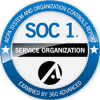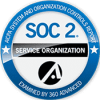If you treat complex patients, chances are that social determinants of health (SDOH) affect your outcomes. Whether you’re sharing risk in a value-based care arrangement or negotiating a risk-based contract, a care management strategy addressing social, economic, and environmental factors that influence health can help you alleviate risk and improve health equity. But can you integrate social determinants without sacrificing too much profitability?
Why Do Social Determinants of Health Matter?
Understanding social determinants—what they are, what actions to take, and the efficacy of those actions—is critical to any population health management strategy. Experts hypothesize that medical care accounts for only 10 to 20 percent of the modifiable contributors to health outcomes, so recognizing how the remaining 80 percent affects the health of your population and mitigating those factors can move the needle for your patients’ outcomes.
Having a grasp of what social determinants affect your patients and what to do for them enables you to be proactive and recommend actions to address issues or even prevent issues from happening. Putting SDOH alongside of other types of medical and behavioral issues as equal partners in the delivery of a patient’s care ensures that all work done on behalf of a patient is documented as a care step toward the improvement of a patient’s health. And, if you’re able to quickly and accurately identify those patients who would benefit from additional support outside the medical realm, you’ll be able to adjust your workflows to address those issues before they eat up your revenue.
Incorporating Social Determinants into Your Care Management Strategy
Social determinants bring more information to the table. With the right tools, you can integrate that information with clinical and behavioral health data to develop a complete picture of the patient, then establish workflows that enable you to efficiently and consistently address those issues according to your care model.
Using technology to bring together providers across the community helps you address the entirety of patient needs, eliminating information siloes and improving communication and collaboration within an interdisciplinary care team. The more you can inform those who are working with an individual, the better the care will be because each provider has more complete knowledge that they can apply to their context to make the right decisions.
Effective population health management requires segmenting your population to figure out which patients would benefit from care management and focusing resources on the patients and actions that best fit your business model. The right assessments can identify those that are at risk so that you can intervene to improve outcomes. Tools that use assessment results to auto-populate care plans and workflows will enable interdisciplinary teams to more efficiently collaborate with community resources to address all issues that impact health.
Evaluating Social Determinants Results
When evaluating your efforts to address social determinants, you can’t just look at whether the medical outcome was successful or not, because even an unsuccessful outcome may have been even worse if you didn’t intervene. Placing a spotlight on SDOH activities rather than letting the medical outcomes speak for the effectiveness of the entire process helps you focus on affecting those factors that prevent a full course of care and what activities can mitigate those factors.
Evaluate results with your objectives in mind—the balance between quality outcomes, cost, and patient satisfaction your organization is trying to achieve. The insights you gain will help you proactively take action early to mitigate issues. Moving from reactive treatment to preventative care will improve outcomes and positively impact your ROI.
Incedo Integrates Social Determinants with Physical and Behavioral Health
Success requires finding the right tools that enable you to efficiently work not only with the clinical resources that support medical and behavioral health but the community resources that help alleviate social determinant challenges.
InfoMC has more than 25 years of experience driving innovation in addressing behavioral and social determinants as part of whole-person care. We can help you more efficiently and effectively manage your population’s health and eliminate the barriers that get in the way of quality medical care.
Our fully integrated Incedo platform enables organizations to seamlessly connect with community resources and manage how care is authorized, coordinated, and delivered so they can more efficiently and effectively support whole-person care—particularly for populations with complex and interlocking physical, behavioral, emotional, and social issues that are obstacles to good health outcomes. Workflows, apreconfigured for the Special Needs Plan (SNP) model of care, can be automated according to your model of care, making care management more efficient and consistent and ensuring that important tasks don’t fall through the cracks.
Learn more about how Incedo integrates care management, utilization management, and behavioral health management to help you improve outcomes without sacrificing ROI.








